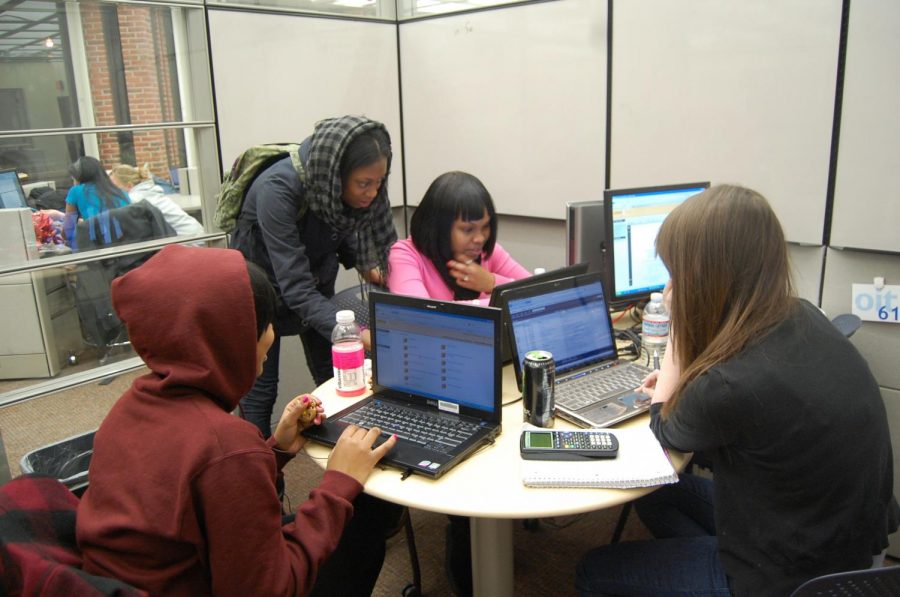It’s hard enough to control your own life, let alone somebody else’s. Yet many of our classes rely on group collaboration that requires every member to contribute. Naturally, this causes problems when people don’t pull equal weight. Being assigned to a group with a slacker can feel like an unfair punishment at times. Why should I have to work harder than my friend from another team just because they got a better group? It can feel annoying, unnecessary and unfair.
As I’ve written before, there are many issues with the Team-Based Learning (TBL) format that the University of Massachusetts is increasingly adopting. If members of a team have different levels of investment in the class or the instructor takes a hands-off approach, the class generally won’t be very pleasant. After eight semesters of taking TBL classes, it’s usually obvious within the first two weeks whether or not the class is going to be miserable because of its format.
Yet group work is not an automatic death sentence that makes a class categorically bad. Is it unfair that someone can get a bad partner and have to work harder to make the same grade? Yes, undoubtedly. However, there are scenarios where teamwork is indispensable to the learning experience
The most obvious example of this is during lab work. In the sciences, most lab classes will require at least some level of coordination with benchmates. In introductory biology, it was a formal partnership based on assigned groups. In organic chemistry, it was a loose confederation of anyone who happened to be using the same equipment. In any case, science labs are an example of when group work is not only unavoidable, but actively helpful.
The same criticisms that apply to group work still apply in a science lab. However, rather than being a liability, this is a strength. In the “real world,” science involves collaboration between individuals. Often, this results in innovation and discovery when experts bring their different perspectives together. Similarly, students have an easier time completing their labs when they aren’t struggling on their own. While it has the potential to be unfair on an individual level, an undergraduate science education would be incomplete if it did not heavily feature collaboration in its lab classes.
Group work is also useful in getting students to see other perspectives. In my junior year writing class, our final assignment was a lengthy literature review of a particular bacterial toxin secretion system. While the assignment was on an individual level, the drafting and revision process heavily featured peer editing and review. If anybody knew of a paper or source that would be useful for somebody else’s report, they could share it and fill each other’s gaps.
As a result, most people in the class got useful feedback throughout the research process. The wisdom of the group was enough to compensate for, or at least to mitigate, gaps in an individual’s knowledge. Of course, no system is perfectly efficient, and so there was still always room for improvement. In the end, however, the overall quality of our work greatly benefitted from having different people provide their takes.
There are times when group work is most effective, and I won’t deny that a good portion of UMass classes don’t meet the criteria. For best results, everyone in the group needs to have the same level of investment in the class. One person inevitably ends up taking on more responsibility otherwise. The professor also needs to take a proactive approach to ensuring that everybody is on the same page in terms of content knowledge; I suffered through two-thirds of Physics 131 before realizing that a majority of my group’s issues could have been fixed by giving everyone a 15-minute refresher on trigonometry at the start of the semester, rather than assuming that groups would figure everything out themselves.
I won’t argue that there are times when group work can be massively unfair or stressful. However, it still has its time and place. When everybody in the group has a personal interest in the subject matter and is willing to put in the same work, group projects can go smoothly.
I will admit that I’m a bit of an individualist. Given the choice, I’ll usually choose to work alone rather than depend on someone else’s schedule. It’s a bit like broccoli, though. Even though group work might not always be the most palatable, it can ultimately be good for you (under the right circumstances). The times that I’ve had good groupmates have been some of the best learning experiences I’ve had at UMass.
There is no shortage of bad group-based courses at this University. Let’s not forget the good ones while we’re at it.
Edridge D’Souza is a Collegian columnist and can be reached at [email protected].



















